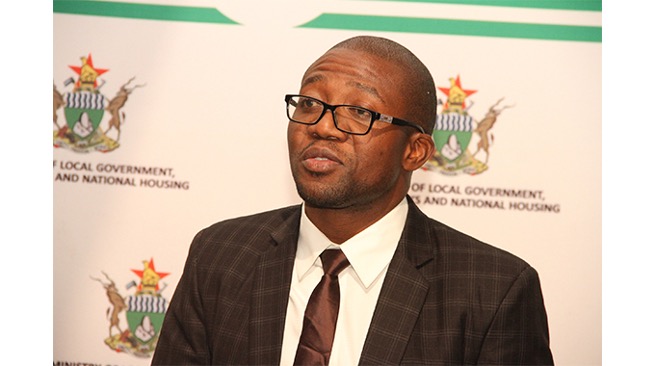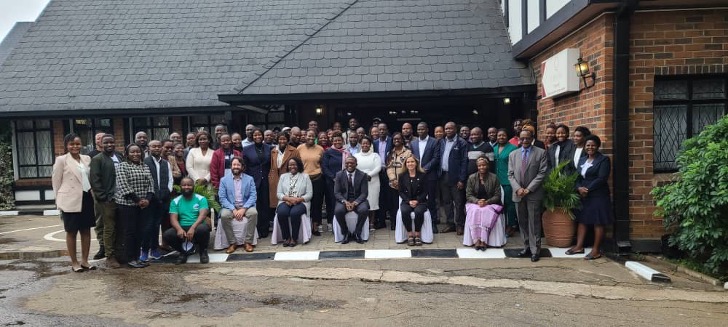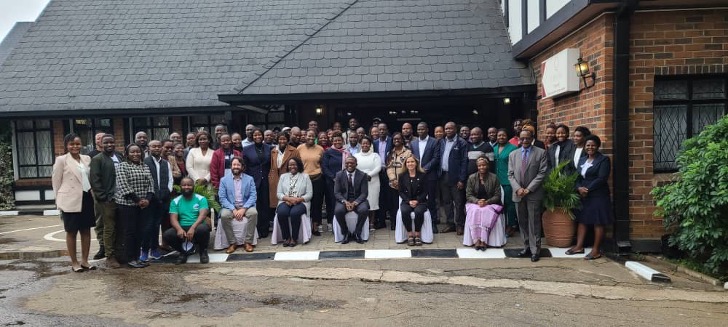The United Nations Framework Convention on Climate Change (UNFCCC) Conference of the Parties (COP) is the supreme decision-making body of the Convention and assesses progress on combatting climate change. Since the first COP or COP 1 in 1995, COPs have been used to review what Parties have achieved, and measure progress. They are also where negotiations take place for the next round of emissions reductions. They are a vital means of monitoring the progress made so far and working out the targets that need to be achieved in the future if we are to reach the goals of the Paris Agreement. As one can imagine, the process can be quite complex. This complexity arises from the multi-faceted and global nature of the climate change issue, involving diverse stakeholders, technical considerations, long-term commitments, political sensitivity, and legal frameworks. The challenge lies in finding common ground among nations with different interests and priorities to address the urgent and complex issue of climate change.
Countries need to know how to navigate the complex international climate change negotiations environment to ensure that their interests are heard and considered. Experienced negotiators have, over the years, developed the skills, knowledge, and confidence necessary to navigate the complex and high-stakes world of international climate change negotiations through a combination of active participation, training, networking, mentorship, and continuous learning.
However, for new and young negotiators, this process can be quite overwhelming. Negotiators must deal with complex issues of climate change, intimidating the international arena, power dynamics between different Parties, limited resources, and support, and balancing between advocating for ambitious climate action and adhering to diplomatic protocols. Despite these challenges, the presence of young negotiators is crucial for the UNFCCC COP process.
In preparation for COP 28, a week-long “Climate Diplomacy Programme for Zimbabwe Negotiators” training, was designed and delivered by UNITAR in Bulawayo, Zimbabwe from the 30th October – 3rdNovember 2023. This is built on the long-standing partnership between UNITAR and the Government of Zimbabwe through UN CC:Learn. This training was a support request that the Government of Zimbabwe submitted to the NDC Partnership Action Fund (PAF).
It was opened by Mr. Mangaliso Ndlovu, Zimbabwe’s Minister of Environment, Climate, and Wildlife. Mr. Ndlovu stressed the world is going through a climate crisis and highlighted the importance of global efforts to emissions.

Mr. Mangaliso Ndlovu, Zimbabwe’s Minister of Environment, Climate and Wildlife. Photo credit: Chronicle Zimbabwe
“We have a climate crisis, and that is precisely the reason why parties convene annually to discuss and reduce greenhouse gas emissions and build resilience in communities across nations. As we are in the implementation period for the Paris Agreement, climate change diplomacy and negotiations are critical towards ensuring that all the objectives of the Paris Agreement are fairly and equitably delivered.” – Mr. Mangaliso Ndlovu, Zimbabwe’s Minister of Environment, Climate and Wildlife
The training workshop was designed for UNFCCC focal points, civil servants in line ministries (e.g. Ministry of Environment, Ministry of Industry and Ministry of Energy), national negotiators who attend UNFCCC bodies as observers or Party members, prepare submissions to UNFCCC bodies and participate actively in the UNFCCC processes in the country.
The training lasted 4,5 days and trained a total of 58 participants. The main goal of the training was to train participants on relevant topics for the upcoming COP28, with a particular focus on building the capacity of the country’s youth negotiators. Some of the key topics, that are of particular interest to Zimbabwe, covered during the training include:
- Enhanced Transparency Framework (ETF)
- Climate Finance
- Article 6
- Global Goal on Adapatation
- Mitigation work programme
- Koronivia joint work on agriculture
- Loss and damage
- Action for climate empowerment (ACE)
- Global stocktake
The training workshop brought important issues to the fore and sparked relevant discussions. A highlight, for instance, was the discussion around the particular circumstances of Zimbabwe, which is a fossil fuel-dependent country that, historically, has contributed very little to the climate crisis but, at the same, is quite vulnerable to climate change impacts.

Two key recommendations that came out from the workshop were the importance of having more training sessions to go in-depth into key topics and the need to get more people trained, regardless of their participation in climate change conferences, such as COPs. Participants received their Certificates of Participation.

Participating in this training is one of the criteria that the Government of Zimbabwe is using in building their delegation to COP 28 in Dubai.


